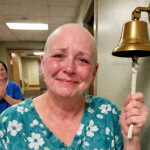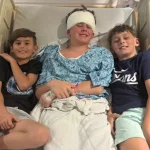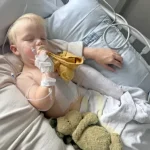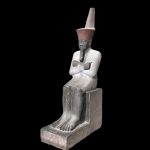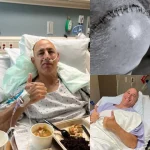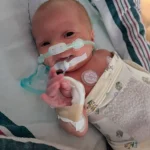Deepak, the Boy with Eight Limbs: From Divine Reverence to a Normal Childhood
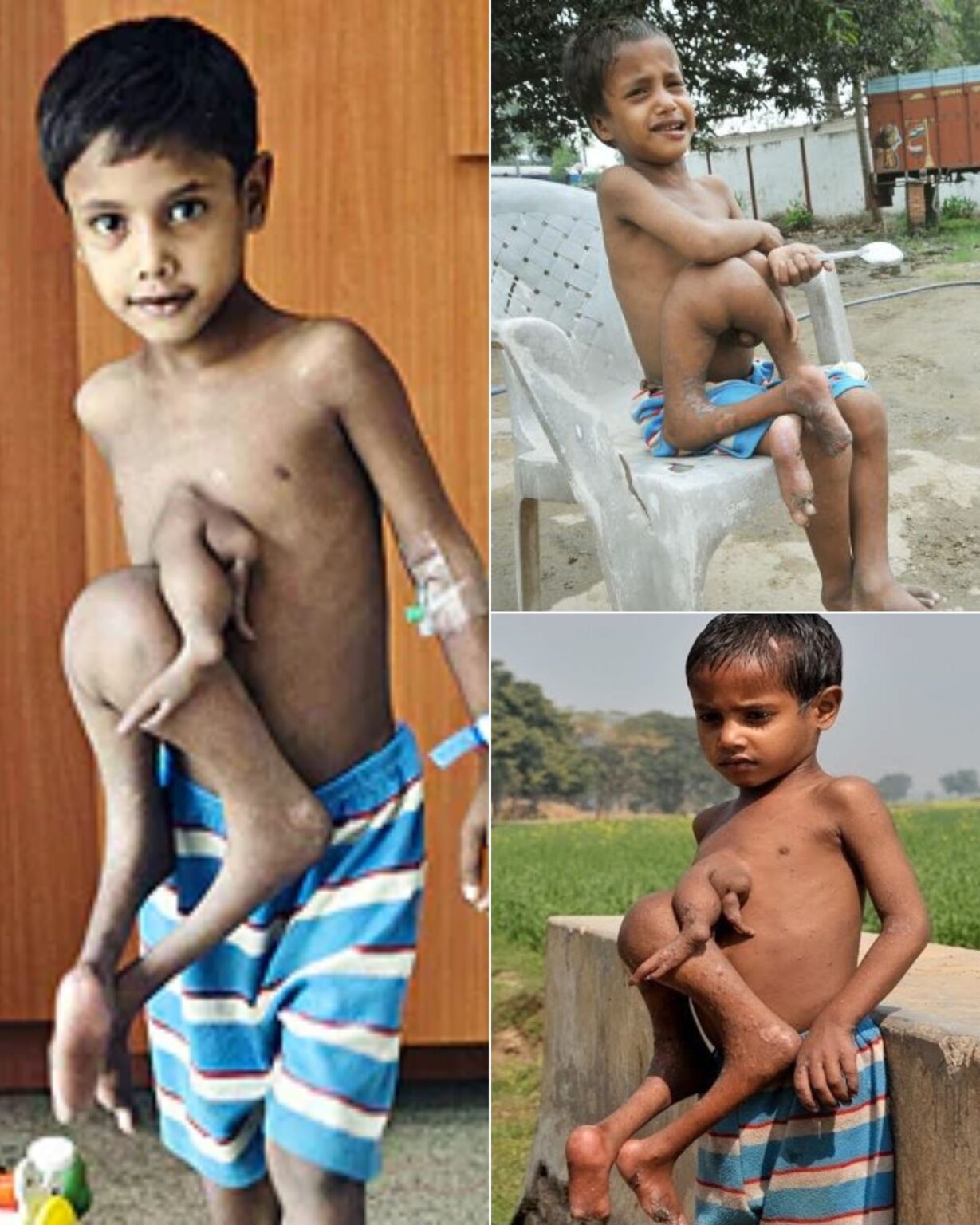
In one of the least developed regions of India, a boy named Deepak Kumar Paswan, now seven years old, captured the world’s attention with his extraordinary birth condition. Born with eight limbs due to a parasitic twin attached to his abdomen, Deepak had four arms and four legs but only one head.
For years, his uniqueness brought both reverence and challenges. Local Hindu pilgrims, fascinated by his rare condition, visited his home to worship him as an incarnation of Vishnu, a deity often depicted with multiple limbs. While such attention might seem extraordinary to outsiders, it created immense pressure and discomfort for Deepak and his family. They did not want their son to be treated as a religious object rather than a child who deserved a normal life.
Early Life and Challenges
Deepak was born in the northern state of Bihar, an area known for its poverty and limited access to advanced healthcare. From an early age, his unusual appearance attracted crowds and attention, making daily life difficult. Even simple activities like playing outside, attending school, or interacting with other children were complicated by the constant public fascination and the stigma surrounding his condition.
A parasitic twin occurs when a twin embryo starts to develop but fails to fully separate. The result is a semi-formed twin attached to the body of the developed child. In Deepak’s case, this resulted in extra limbs—limbs that were not functional but made him the subject of local worship and media attention.
Despite these challenges, Deepak was a resilient child. He faced physical and emotional hardships, often feeling restless and nervous due to mockery and unwanted attention. His family longed for a solution that would allow him to experience a normal childhood.
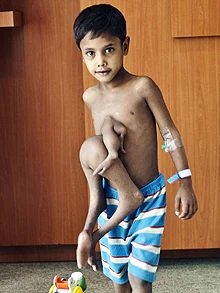
The Call for Help
In March, Deepak’s family publicly appealed for medical assistance to remove the parasitic twin. His father, Viresh Paswan, a construction worker from a low-caste background, expressed concern over the social and religious pressure placed on their son.
“We always wanted surgery to remove the parasitic twin to get rid of him being treated as a religious object by people,” he said.
“My dream has come true. Now we will celebrate it after returning to my village.”
The family’s request highlighted both the medical complexity and the social sensitivity of Deepak’s case. They wanted their son to be free from constant attention and finally able to enjoy a normal childhood, including going to school and playing with peers.
The Surgery
The operation took place on May 30 at Fortis Hospital in Bangalore, in southern India. A team of 15 specialized doctors worked tirelessly for hours to ensure the procedure was safe and effective. The surgery, which lasted four hours, involved removing the parasitic twin while carefully reconstructing Deepak’s abdominal area to allow proper functioning of his internal organs.
Chief surgeon Ramcharan Thiagrajan described the surgery as a major medical achievement. He emphasized that maintaining intestinal and organ function was a priority to ensure Deepak’s long-term health.
“He is 100 percent fit,” said Thiagrajan.
“Due to all the mockery and stigma he has faced, he was very restless and nervous. But now, after this successful operation and counseling, he will lead a normal life.”
The hospital and the medical team worked pro bono, covering the costs of the complex procedure to give Deepak the opportunity to live a normal life.
A New Beginning
After the surgery, Deepak is expected to enjoy activities that many children take for granted. For the first time in his life, he can go to school, play freely with other children, and participate in daily routines without the burden of extra limbs or public scrutiny.
This transformation mirrors the story of Lakshmi Tatma, a girl from Bihar born with four arms and four legs who underwent a successful surgery in 2007. Like Deepak, Lakshmi faced early veneration and religious attention before a hospital performed a life-changing procedure, allowing her to live a normal life.

The Impact on Deepak and His Family
For Deepak’s father, the operation represents a miracle. Beyond medical success, it signifies a return to normalcy and the chance for his son to experience childhood as other children do. Viresh Paswan expressed immense relief and joy, emphasizing the importance of education and social integration for Deepak moving forward.
“Now he will be able to go to school like any boy of his age,” he said.
“This is a blessing we never thought possible.”
The surgery also had a profound psychological impact. Deepak, previously restless and anxious due to years of attention and mockery, now has the opportunity to undergo counseling and build confidence in a safe and nurturing environment.
Understanding Parasitic Twins
A parasitic twin is a rare phenomenon where one twin embryo partially develops but does not separate fully. The partially formed twin depends entirely on the healthy twin’s body for survival, resulting in extra limbs or other body parts attached to the healthy child.
Cases like Deepak’s are extremely uncommon, requiring highly specialized medical teams to address both functional and cosmetic concerns. Removal of a parasitic twin often involves meticulous planning and careful post-operative care to avoid complications.
Lessons and Awareness
Deepak’s story brings global attention to several important issues:
-
Healthcare accessibility: Even children in the most remote and underdeveloped regions deserve access to advanced medical care.
-
Social stigma: Unique medical conditions can attract unwanted attention and religious veneration, impacting a child’s mental and emotional well-being.
-
Medical innovation: Highly skilled teams can perform life-saving and life-transforming procedures even in complex and rare cases.
-
Empowerment through normalcy: Every child deserves the chance to live a normal life, free from the burdens imposed by societal fascination or superstition.

Moving Forward
Now fully recovered, Deepak is expected to start school and participate in everyday activities with children his age. The surgery has not only removed his physical burden but also lifted the social and emotional weight that came with it.
For his family, this marks a new chapter. No longer forced to navigate the challenges of constant religious attention and public scrutiny, they can now focus on Deepak’s education, happiness, and future opportunities.
The success of Deepak’s surgery also serves as a beacon of hope for families facing similar situations. It demonstrates that with the right medical expertise, support, and compassion, children with rare conditions can lead healthy, fulfilling lives.
Conclusion
Deepak Kumar Paswan’s journey from being venerated as a god to living a normal childhood is a remarkable testament to the power of medical innovation, family support, and the human spirit. At just seven years old, he has already faced challenges that many adults could not imagine, yet he emerges resilient, healthy, and ready to embrace life like any other child.
This extraordinary story is a reminder to the world that every child deserves a chance to live free from stigma, fear, and unnecessary veneration. Thanks to the dedication of his medical team and the love of his family, Deepak now has the opportunity to enjoy the innocence, freedom, and joy of childhood, running, playing, and learning without limits.

